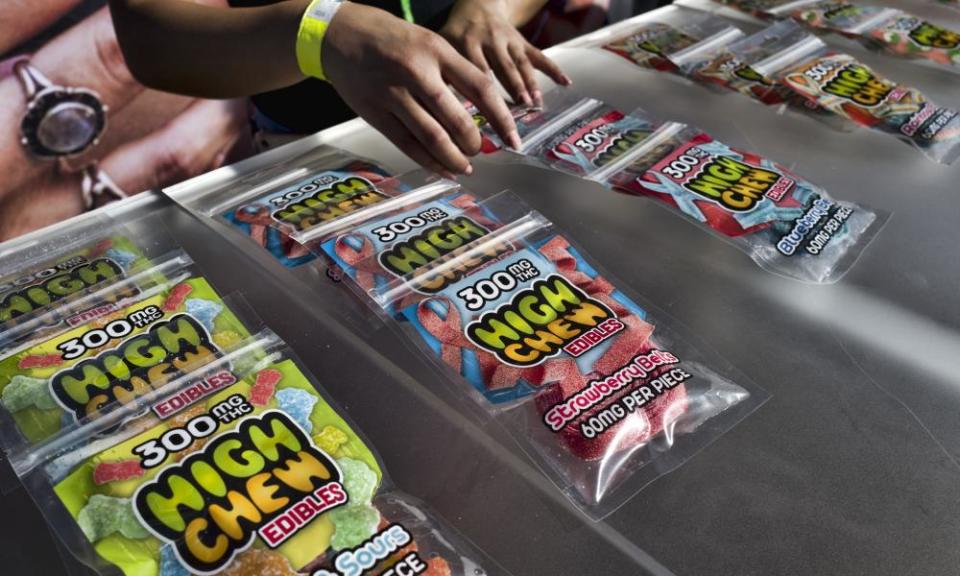Canada: officials urge action to keep edible marijuana away from children
Spike in marijuana poisonings prompts call over edibles
Many retailers sell cannabis-laced brownies and sweets

Following a sharp increase in cannabis poisoning among young people, Canadian health professionals are calling for tighter controls to keep edible marijuana products away from minors.
Canada last month became the second country in the world to legalize recreational cannabis, but federal legislation prohibits the sale of edible versions of the drug until at least 2019. The law, however, has done little to stop online retailers and physical stores from openly selling brownies and candies infused with cannabis throughout the country.
Ontario and Alberta have already experienced nearly 600 cases of poisoning last year for patients under the age of 20, nearly twice the figure for 2014. The two provinces also saw 24 children under the age of four taken to emergency rooms after eating cannabis edibles last year, the Canadian Institute for Health Information said.
“We’ve seen a spike for sure,” said Dr Margaret Thompson, director of the Ontario Poison Centre. “Will we see a huge increase as they did in some of the United States? I can’t say for sure.”
Following legalization, a number of US states experienced a significant jump in the hospitalizations related to cannabis. Colorado quickly tightened rules around the previously unregulated edibles market as emergency visits set a new record. In a bid to keep the product unappealing to children, the revised state rules prevented products from resembling animals, fruit or people, and limiting their THC content.
Because the effect of cannabis is delayed when eaten – and ingesting a gummy bear or cookie is easier than smoking – doctors have greater concerns over poisoning cases with edibles.
This summer, a young girl in British Columbia was rushed to the emergency room after her parents realized she’d consumed an unknown quantity of cannabis-infused gummy bears she found in the back seat of a car.
“It’s not fair to ask the entire world to police one person’s child. That’s the job of a parent– explicitly,” said Yannick Craigwell, who runs the online edibles store TreatsandTreats. “Parents should make sure if they purchase these things, it’s their responsibility to make sure it’s not available to kids.”
Health Canada already requires marijuana come in child-proof packaging when sold in government-run stores. But for health professionals, that might not be enough.
“As a toxicologist and an emergency physician, in both of those fields we certainly feel these products are attractive to children. And therefore, they put children at increased risk,” said Thompson.Health Canada has considered banning cannabis products with flavours that might appeal to children.
Because edibles cannot be legally purchased, there is no prescribed dosage of THC – the main psychoactive element of marijuana – in each unit. One company in Vancouver, which sells brownies online, has THC levels nearly nine times higher than Colorado’s legal amount.
Bill Blair, the cabinet minister overseeing legalization, has said that regulation stipulating the potency and purity of edibles will be introduced within a year.
The Cannabis Act already has strict rules against providing drugs to minors, with a maximum fine of $15,000 and as many as 14 years in jail.
“I definitely agree with the doctors that when you’re administering anything that’s considered a drug, there should be more rules that govern it,” said Craigwell. “But the problem is, we’re in such a grey area right now.”

